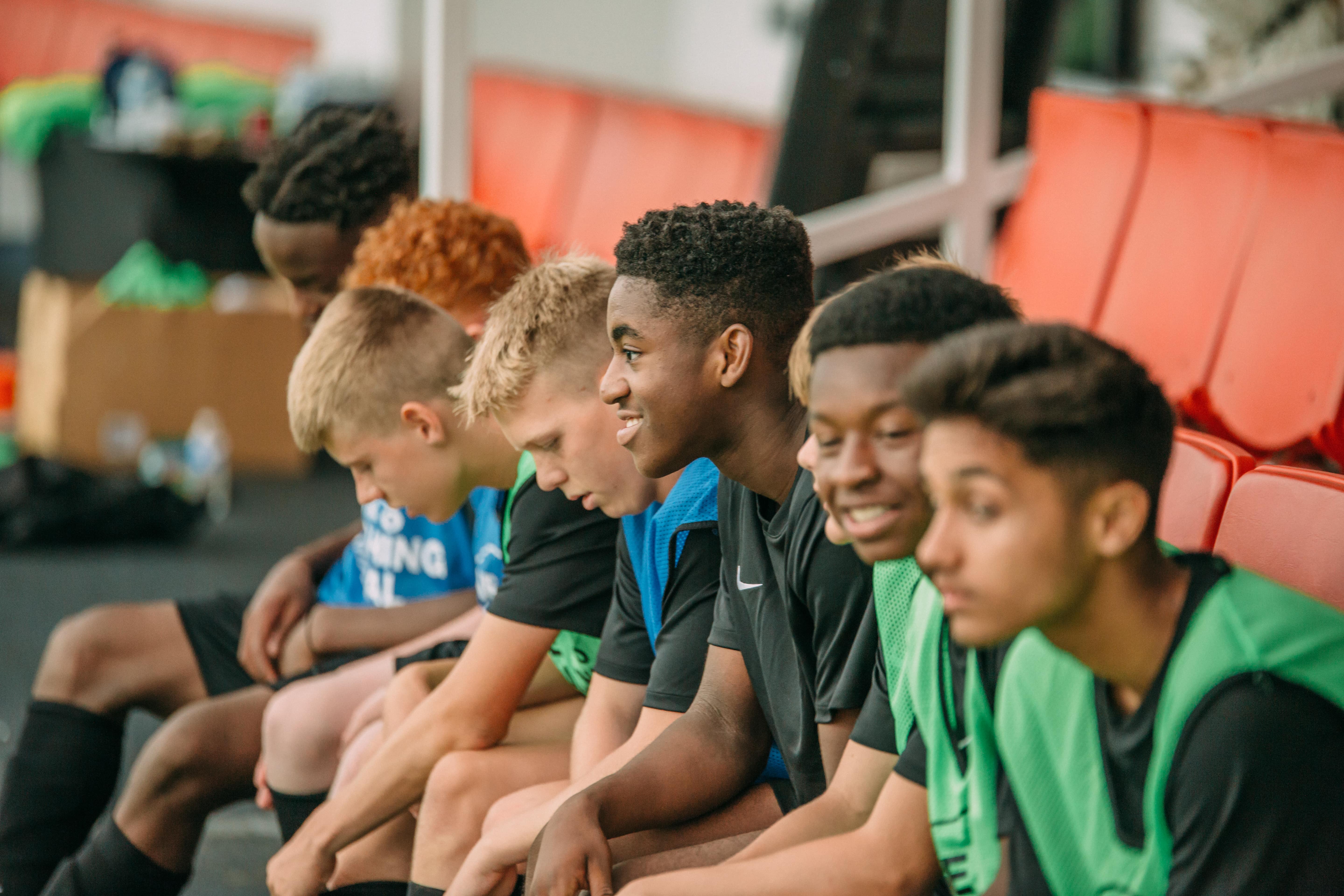The role of Director of Coaching (DOC) isn't just about making the necessary strategic decisions to achieve on-field success.
With responsibility for a coaching team that could number in the thousands, a DOC also has to put policies and processes in place to ensure that things run smoothly behind the scenes. These policies should cover everything from protocols around travel arrangements to standards of spectator behaviour.
To be a successful DOC, you'll need to have a firm grasp on a vast range of policies and procedures. You may be responsible for reviewing and formulating some - or all - of the following:
Code of conduct
It's important to set clear expectations around the behaviour of everyone connected with a soccer club, from coaches and players to parents and supporters.
For coaches and players
As a DOC, you'll have your own beliefs about how players and coaches should behave on and off the field. These beliefs should be enshrined within your code of conduct, which may touch on anything from use of foul language to giving and receiving constructive criticism. Parkland Soccer Club provides an excellent example of how this policy might look in practice.
For spectators and parents
They may not be directly involved, but parents and spectators have a major influence on how your club is perceived and your players progress. Through your code of conduct, parents should be instructed to treat coaches and officials with respect, and to support their child's participation in soccer activities.
Code of ethics
The cornerstone of your club culture, the code of ethics is effectively your club's mission statement. Do you believe in fair play? In fostering a positive and fun environment for player development? In building a strong, supportive team spirit? All of these goals should be defined in your code of ethics. Find an example of an existing code of ethics here.
Complaints & appeals procedure
Sport is a high-pressure environment in which disagreements are inevitable. Rather than trying (and likely failing) to prevent them, concentrate on formulating a clear and detailed procedure around complaints and appeals.
Ensure that when fallouts occur, they are handled professionally and logically, rather than being emotionally charged. Set rules around what can and can't be discussed, and with whom these discussions should take place.
An appeals and escalations procedure should also be developed for instances in which the standard complaints process proves insufficient.
Management structure
A clear management structure - visible to employees, parents and players - can go a long way toward diffusing tension among your backroom team by defining who holds responsibility for what. This lessens the chance of managers stepping on each other's toes, or of staff going over their manager's head with a grievance or request. Similarly, you should provide clarity and specificity around the roles and responsibilities of your coaching team.
Competitive selection
When it comes to successfully integrating new players and encouraging continued, season-on-season development, a competitive selection policy - under which each team is re-selected every year - can be a key weapon in your arsenal. If you're planning to implement this system at your club, it's important to provide a definition of your policy. Consider the following:
- How are players evaluated?
- Are some traits considered more desirable than others?
- Who has the final say over which team a player is assigned to?
- Under what circumstances can players be moved to a different team?
Team formation
One of the most sensitive issues for players and parents alike is how teams are formed. Everyone wants to be on the "A" team, but a player may not be prepared - mentally, physically or in terms of their skill set - to compete at this level. Your team formation policy should anticipate common queries by setting out the parameters for choosing the "A" and "B" (and "C", "D", etc.) teams, and explaining how players can progress from lower to higher-skilled teams.
Safeguarding
Protecting your players from harm should be a permanent item on the agenda of any DOC. An effective safeguarding policy should clarify the steps for reporting concerns about the welfare of a child within your club. In England, the FA has published in-depth details of its own safeguarding policies; you can find them here.
Injury (and concussion) policies
Who decides if a player is fit to take the field? Who has responsibility for overseeing player rehabilitation? Whose job is it to assess whether a player suffered a concussion after taking a blow to the head? And how can you guarantee that such decisions are based solely on player welfare, rather than on the team's needs in the midst of a high-pressure match? All of these questions - and more - should be answered by your injury policy. Read the Colorado Rapids Youth Soccer Club concussion policy for a practical example.
Severe weather
You have a duty of care toward your players and staff. Part of this involves ensuring that training sessions and matches never take place when conditions are unsuitable.
Depending on the geographic location of your club, you may have to contend with everything from tornadoes and severe thunderstorms to strong winds and extreme heat. Your severe weather policy should dictate whether or not it's appropriate for your staff and players to be on the field in any of these conditions. Portage Soccer Club offers an excellent example of a severe weather policy.
New player evaluations
Bringing in new players can offer numerous benefits, ensuring that their teammates don't become complacent and providing valuable external experience. But in order to ensure that you're attracting the right players, you'll need to define how they're being evaluated. Your policy should cover everything from the frequency of player tryouts to the characteristics of an 'ideal' new player - not just in terms of their skill set, but also from a cultural perspective.
Recruitment
Whether it's finding the best coaching talent or attracting quality players, recruitment is a key part of the DOC role. If you're going to consistently find the right people, you'll need a detailed recruitment policy in place for both coaches and players.
For players
Once you've evaluated a new player and established that they're a good fit for your club, the player in question needs to understand what they are signing up for. This wide-ranging policy will cover everything from informing the player's parents that you wish to sign them, to immersing them in the culture of your club. You may, for instance, choose to assign all new recruits with a 'buddy' to answer their questions and to help them fit in with their teammates.
For coaches
Good coaches are in high demand. If you're going to consistently attract the best coaching talent to your club, you'll need a streamlined process for doing so, combined with a watertight policy on what the 'ideal' new recruit looks. For advice on finding quality coaches who will thrive in your club environment, read our guide: "Staff Recruitment: How to Identify the Right Coaches for your System."
Team travel
Simple as it sounds, traveling to matches can be a logistical nightmare without clear policies and procedures in place. As well as detailing who's responsible for arranging transport, your team travel policy will need to account for overnight trips, choosing suitable accommodation, and covering costs for long-distance journeys. Along with your club's code of ethics, it should touch on expected behaviours among players and staff when traveling as a club. For an example, take a look at Pacific Northwest Soccer Club's travel policy.



